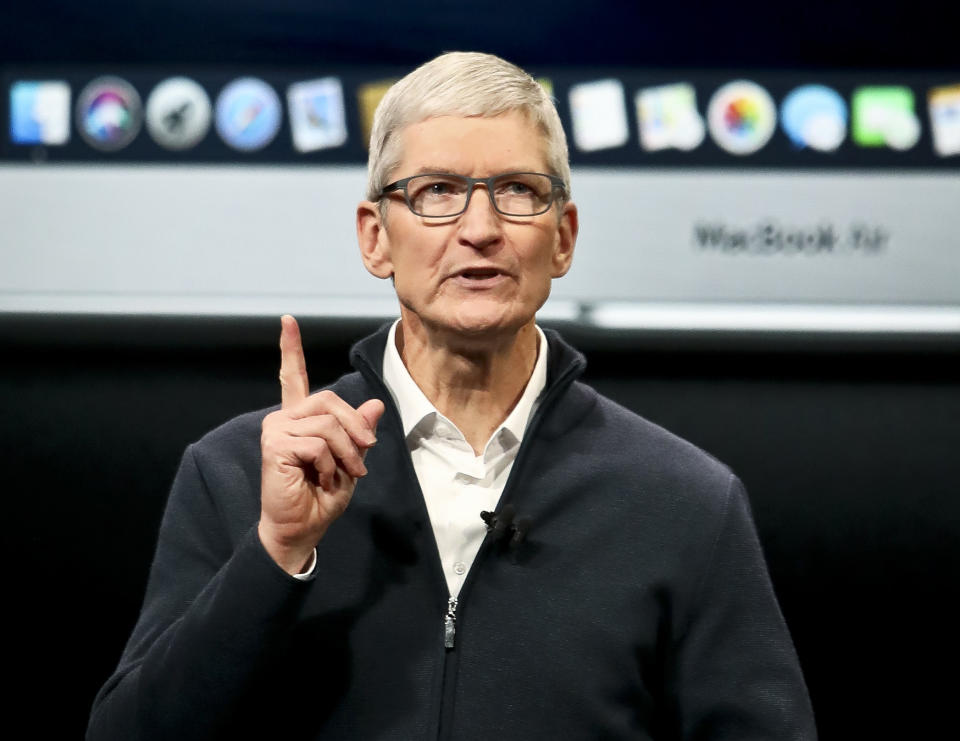Apple Q4 2018 earnings preview: Services take center stage
Apple (AAPL) is scheduled to announce its Q4 2018 earnings on Thursday. While much of the talk will focus on how many iPhones the company sold in the quarter, one of the most important numbers to look for is Apple’s year-over-year services performance. Services could become a real driver for the company over time, as the iPhone’s sales continue to plateau.
Naturally, you’ll also need to be on the lookout for the company’s average selling price (ASP), which can give you a better understanding of whether consumers are moving toward more expensive devices like the iPhone 8 Plus, iPhone XS and iPhone XS Max.

Since last year’s iPhone X, Apple has been slowly increasing the prices of its iPhones, which could help boost its margins. In Q3 2018, the company reported earnings per share up 40% and record services revenue. And that’s not likely to slow down.
Services growth
You can only sell so many iPhones in the world before you hit total saturation and growth ultimately becomes flat. And since Apple makes the vast majority of its money through iPhone sales, any slowdown in growth can make investors jumpy. To offset that, however, Apple has laid the groundwork for its services business to become a major money-maker.
Services include everything from iCloud, Apple Music, iTunes and the App Store to Apple Pay and Apple Care. That segment made $9.5 billion in revenue in Q3 2018, making it the second most profitable part of Apple’s business behind the iPhone, which pulled in $29.9 billion.
In their latest note, UBS analysts Timothy Arcuri and Munjal Shah project year-over-year services growth to top 21% for Q4 2018, with revenue expected to come in at $10.3 billion.
During a prior earnings call, Apple CEO Tim Cook pointed out that Apple’s services business would qualify as a Fortune 100 company on its own. And with Apple expected to add a full-fledged TV streaming service in the future, the services sector of the company could one day become a juggernaut.
Average selling price still matters
Apple’s iPhone XR, XS and XS Max weren’t on the market through the entirety of Q4 2018, so we’ll only see a fraction of their impact on this quarter’s earnings. Still, with the release of iPhone X last year for $999, the XR starting at $50 more than the iPhone 8 cost last year and the XS and XS Max priced at $999 and $1,099, respectively, Apple is clearly working to ensure that it drives up the ASP of each handset it sells. A higher ASP would allow Apple to make more money off each handset it sells.
“Apple’s pricing strategy has been successful in moving customers up the price curve,” Arcuri and Shah explain in their note. “We calculate the average price of all the flagship models is 19% higher than a year ago. Average ASP of older version models is also higher by 6%.”
Even Apple’s new MacBook Air, which it announced at an event in New York on Tuesday, will have a higher ASP when it goes on sale. At $1,199, the new Air will cost $200 more than its predecessor, which will help drive a higher ASP in that business segment in Q1 2019.
This will be an important quarter for Apple for sure. However, it’s the next quarter, which includes the holiday shopping season, that will really tell us whether Apple’s new pricing strategies are continuing to lure in shoppers, and whether its MacBook Air refresh pays off.
More from Dan:
Email Daniel Howley at dhowley@oath.com; follow him on Twitter at @DanielHowley. Follow Yahoo Finance on Facebook, Twitter, Instagram, and LinkedIn

 Yahoo Finance
Yahoo Finance 
